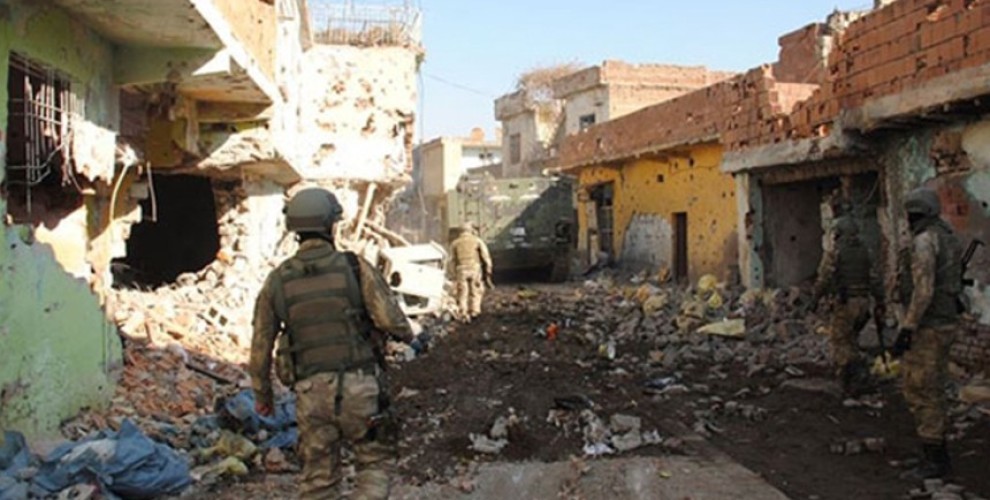Sur: The longest curfew in history still on
Sur Platform co-Spokesperson Çetinkaya said that the longest curfew in the world is still on in Sur and said it should be removed as soon as possible.
Sur Platform co-Spokesperson Çetinkaya said that the longest curfew in the world is still on in Sur and said it should be removed as soon as possible.

The 'curfew' in Amed's Sur district is the longest in the world.
The curfew has been going on since 2 December 2015 and affects 6 neighborhoods.
The destruction of these 6 neighborhoods by the Turkish state and the construction of houses which were not respecting the historical architecture of the site and had caused the reaction of the citizens.
More than 20 thousand people from Sur, who were virtually evicted from those neighborhoods, live in hardships in other districts.
The Sur Platform, which has carried out work both about the curfew and demolition in Sur as well as with Sur families, has been following developments since the first days of the curfew. The spokesperson of the platform, Talat Cetinkaya, talked to the ANF about the curfew and the situation lived by families for the past 3 years.

Cetinkaya evaluated the three years since the announcement of curfew in the district of Sur, and stated that it is a very painful process especially for the pain it carries with it in everyday life.
Çetinkaya said: "The curfew and ban that was declared 3 years ago in the city is still not lifted. But the reality is that there is no human nor street left in those 6 neighborhoods.
Interestingly, though, - he added - there is still a ban on access. Obviously, we have difficulty understanding the logic here. We perceived the reason for this ban being first of all to cover the crimes committed there."
During the process though, said Çetinkaya, "the area was transformed and flattened. This now flat area had about 3,400 structures. Nearly 3,000 of them houses. People lived in those houses. We are talking about a population of almost 22,000. This historical area was destroyed completely."
Stating that the destruction of the 6 neighborhoods in Sur is a crime in itself, Çetinkaya added: "As Sur Platform, we have exposed this universal crime. We have always emphasized that a crime against history and humanity has been committed here. This ban must be lifted as soon as possible and what happened there must be told. This is what we have been trying to do for the past 3 years."
Çetinkaya said: "We couldn't make this very visible due to the conditions of the State of Emergency, but telling the world what was happening here was our main motivation. Because there were forced migrations, and history was destroyed. Sur had already been declared a world heritage according to the international standards and UNESCO. National and international platforms have expressed them with reports. We were working together with the families evicted from that area to try and counter the distorted facts. We tried to convey what was happening directly to the public and the press."
Nearly 2 thousand homeowners were victimized in the region, said Çetinkaya, adding: "They have taken their property from the hands of the people. Expropriation they called it. The people tried to pursue their struggle by following the legal situation."
But since there is "no internal democracy and no law, - said Çetinkaya - nobody has yet responded. Families are still looking for their rights. They are angry at the State. They do not forgive the government system that led to the demolition of their homes nor do they forgive those who made the decisions of these curfew. Their economic and social situation is very bad compared to 3 years ago. They had to rent flats, while they once were home owners."
Çetinkaya said that houses built by TOKI (Housing Development Administration of Turkey) were shown to the residents of the 6 demolished neighborhoods.
"We try to support the families in many ways, - he said - especially in legal matters. The cases opened by the families are still going on. Currently, domestic remedies are not exhausted. We will take the decisions of the local courts against the families up to the Constitutional Court and the European Court of Human Rights, if necessary. There are already cases in the Constitutional Court. We will act according to the decisions made there."